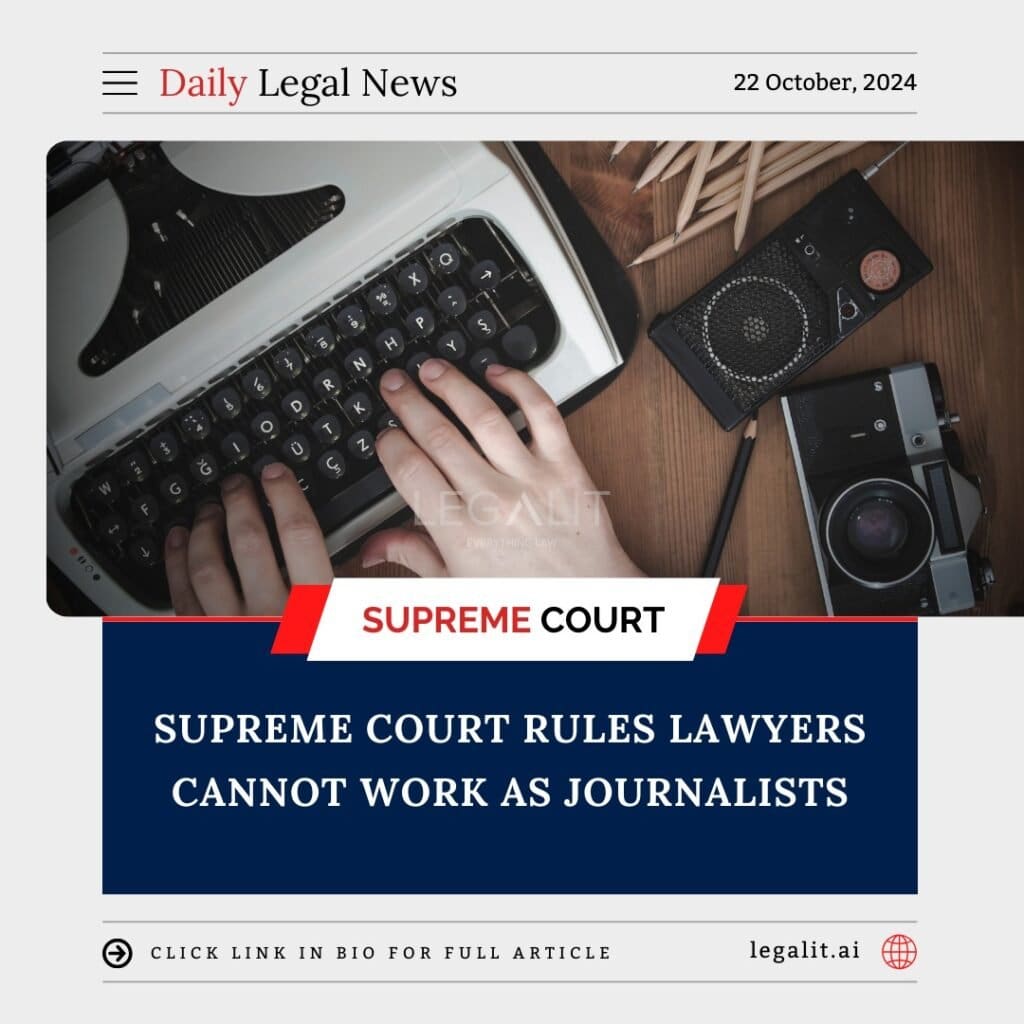
The Supreme Court of India has made a clear ruling that lawyers are not allowed to practice as journalists simultaneously, stating that it could create a conflict of interest between the two professions. This judgment came in light of concerns that a lawyer, while reporting or conducting journalism, might face situations where their duties as a lawyer could conflict with the ethical responsibilities expected from a journalist.
Background:
The issue arose from a case involving a lawyer who had been actively working as a journalist. The Supreme Court stressed that journalism, as a profession, requires neutrality and impartiality, while law involves client representation that could challenge this principle. The court was concerned that a dual role could result in biased reporting or conflicts in professional duties.
Court’s Observations:
The court noted that allowing such dual practice might lead to a compromise in the legal profession’s integrity. Lawyers are expected to maintain confidentiality, loyalty to their clients, and objectivity in legal proceedings. Meanwhile, journalists are tasked with providing unbiased and factual reporting. The mix of these two roles could lead to ethical dilemmas, potentially jeopardizing both the legal and journalistic professions.
Implications:
This ruling underscores the importance of keeping the roles of lawyer and journalist distinct. For professionals in both fields, it reinforces the need to adhere to ethical standards within their respective professions. The judgment could set a precedent for future cases where professionals might seek to engage in multiple fields simultaneously, particularly when those fields have overlapping or conflicting ethical requirements.
Conclusion:
The Supreme Court’s decision reaffirms the distinct responsibilities of lawyers and journalists, ensuring that the integrity of both professions remains uncompromised. This ruling serves as a reminder that professionals must carefully navigate dual roles to avoid ethical conflicts.